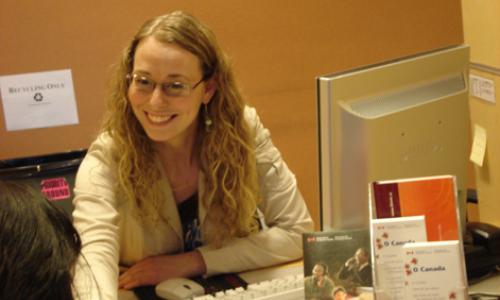
Finals season is coming up, and so is the daily intake of caffeine by students – you know who we’re talking about. Exam stress is a natural part of life that everyone will face at one point or another, but there are ways to ease the stress associated with this busy time. Following are some tips that will help you cope during final exams/final papers/final projects etc.
The first tip, and probably most overlooked, is to stay organized. Of course it would be simpler to dump that handout into your binder in some random location, but come exam time, that piece of paper might be vital to know about for the exam. Similarly, keeping your computer’s folders is important too. Certainly it would be easier to throw stuff on the desktop for easy access, but it will become a jumbled mess fairly quickly – you’d be wasting valuable studying time trying to look for a file you could’ve kept neatly tucked into a dedicated school folder.
Speaking of wasting time, there’s another important aspect – managing your time wisely. Waiting until the night before the exam to study may work for some people, but there are better ways to study. As busy students, you are constantly juggling your agenda to accommodate everyone, but during exam time, look at your schedule and see what you can cut down on. Generally, a 3-credit course will require 6-9 hours of studying time, so plan enough time in your schedule to accommodate that, most certainly during exam time.
If you put off reading the last paragraph to see what else is in this post, you’ll know the next tip – avoiding procrastination. Procrastination makes it easy to “put off today what you can do tomorrow,” but it’s a dangerous cycle that can have a tremendous impact on your academic career, and possibly even your professional career if you continue. That’s not to say you should study all day – doing so might result in less success anyway – but take study breaks wisely. If you know you’re going to fall asleep during your late-night studying session, wake up early the next day. You might feel a bit groggy, but it’s a lot better than losing out on precious sleep and not remembering anything you read. Reducing procrastination also helps in reducing stress, as you won’t be feeling overburdened.
While this next tip isn’t necessarily something you’d do while studying for finals, it is something you might want to do before classes end (and is also similar to the last point). That would be to participate whenever you have the chance, especially in tutorials. Not only does participation give you extra marks (something that could be the difference maker between a B+ and A-), it also allows you to better retain information, and have a greater understanding of the material. Don’t wait (procrastinate) until Week 12 to raise your hand, because you’ll be missing out on the main benefit of attending tutorial – engaging with the material. Participation is one of the reasons you’re in post-secondary – to analyze and think critically. Active participation can also help you in absorbing information for that pesky final exam.
Everyone is different with their studying methods, but every student has one thing in common – a special study space, where they can keep focus. Do whatever works for you, whether that’s in a busy coffee shop, listening to heavy metal at maximum volume (not recommended), or just reading in pin drop silence, do what works. There’s no point being somewhere where you’re constantly distracted, even if it’s what you ‘think’ works for you. Try to find a pattern before finals start so that you can use your established method and start hitting the books right away when the time comes.
Finally, and this of course sounds completely cliché, but it’s true – try your best. Even if you don’t feel completely confident after the exam, knowing that you tried your best is what matters. If you used your time effectively and studied to the best of your abilities, don’t despair, because this one final isn’t the entire definition of your existence. Though if you didn’t take enough time to study (by, perhaps not following some of the tips listed above), remember that there will always be another opportunity to excel on a different exam. Maya Angelou has some comforting words if you feel a bit hopeless “You may encounter many defeats, but you must not be defeated. In fact, it may be necessary to encounter the defeats, so you can know who you are, what you can rise from, how you can still come out of it.”
And there you have it, some tips on studying effectively. Feel free to send us a tweet @SFU_Career with some of your favourite studying tips. Good luck on your exams!














